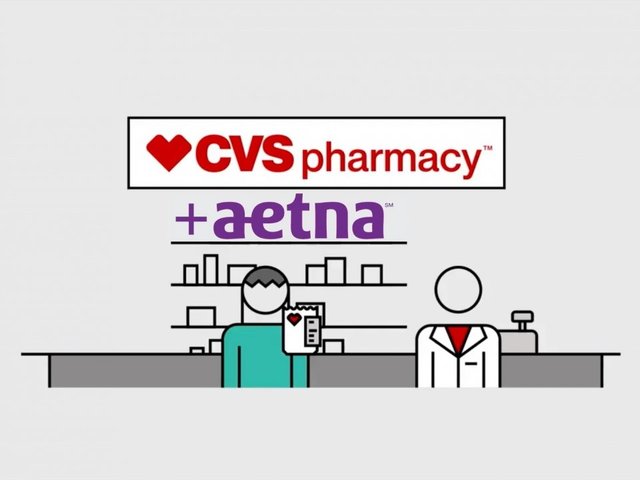THE HILL : BY DR. ROGER KLEIN, OPINION CONTRIBUTOR — 01/10/18 07:00 PM EST -THE VIEWS EXPRESSED BY CONTRIBUTORS ARE THEIR OWN AND NOT THE VIEW OF THE HILL
On Dec. 3, drugstore chain CVS announced that it would purchase insurer Aetna for $69 billion, making this the largest health insurance merger in American history.
The acquisition comes on the heels of a period of consolidation in the health-care industry that has been driven by rapidly increasing costs, declining reimbursement, technological change, increasing regulatory burdens and legislative changes, most prominently the Affordable Care Act.
Its purpose is to allow these two entities to more effectively compete with other integrated providers like UnitedHealth Group, with its physician practices, surgery centers, urgent care clinics and pharmacy benefit manager, Kaiser Permanente, Geisinger Health System, more conventional providers like hospitals and physician groups and even disruptive retailers like Amazon.
The CVS-Aetna merger is known as a “non-horizontal” merger. This means that the merging companies are neither actual nor potential competitors in the same markets.
Instead, the CVS-Aetna combination brings together sellers whose relevant products are mostly complementary goods and services like prescription drugs, pharmacy benefit management, primary care and health insurance.
The merger also has “vertical” elements. For example, health insurers are often purchasers of prescription drugs, pharmacy benefit management services, prescription drugs and other pharmacy products.
Historically, federal enforcement activity has centered on “horizontal” mergers, that is, mergers of competitors. Typically, horizontal mergers present a greater risk of harming consumers than do non-horizontal mergers.
However, the recent Justice Department lawsuit challenging AT&T’s $85 billion purchase of Time Warner and remarks Assistant Attorney General for the Antitrust Division Makan Delrahim made at an American Bar Association conference in November suggest that the government may be taking a fresh look at its approach to non-horizontal combinations.
The Justice Department and the Federal Trade Commission should allow the CVS-Aetna acquisition to proceed as planned.
Rather than an anti-competitive tactic that could injure consumers through higher prices, lower quality and fewer choices, the proposed CVS-Aetna merger is an innovative response to the unstable and intensely competitive dynamics that characterize the health-care marketplace. It may represent a new model for the interaction of patients and consumers with the health-care system.
With its 9,700 pharmacies and 1,100 walk-in clinics, CVS’ link-up with Aetna, one of the oldest and largest health insurance companies in the United States, has the potential to impact where patients are seen, the frequency of their doctors’ appointments and the overall costs of care.
Through its combined purchasing leverage and influence over utilization, the fusions of CVS, its pharmacy benefit manager and mail order pharmacy Caremark and Aetna may be able to stem the tide of rising drug prices.
CVS’ clinics provide health screenings, vaccinations, lab tests and treatment for common illnesses or injuries in a convenient and patient-friendly format. Thus, CVS-Aetna may turn out to be less expensive or more efficient at managing chronic diseases like diabetes and high blood pressure than current delivery systems.
Maybe they will place an unprecedented emphasis on preventive health, and offer 23andMe’s genetic test to their regular patients. Perhaps through their union, these entities will find novel ways to analyze and make use of the voluminous data they already have and will possess in the future.
The potentially disruptive CVS-Aetna merger creates a unique integrated service provider. It will be unusual in not relying on physician services at its center. The commercial success of the new CVS-Aetna is in no way assured. Whether it will find novel ways to provide value for consumers and patients can only be determined by letting it compete in the marketplace. That is the point.
Solutions to challenging problems require creative thinking, original approaches and risk taking. Our multi-trillion-dollar health-care system serves over 300 million Americans. Although we often think of small, start-up companies as the main drivers of disruptive innovation, in an economic ecosystem as large and complex as the U.S. health-care system, transformational change must also take place at the macro-level.
If CVS and Aetna join forces to increase consumer value through the provision of less expensive, more efficient, more convenient care at acceptable quality; if the fused entity is more effective at meeting the needs of consumers than its competitors, it will succeed.
Patients, consumers, shareholders, employees and the health-care system will benefit from this favorable outcome. If CVS-Aetna does not provide value to consumers, the tie-up will fail. However, in the latter case, society will have had the opportunity to benefit from the valuable lessons that will undoubtedly be learned.
Dr. Roger Klein is a member of the Regulatory Transparency Project’s FDA and Health Working Group. He is a former advisor to the FDA and HHS. Dr. Klein graduated from Yale Law School and completed his post-graduate medical training at Yale Medical School.
Questions about ACA, private Medical Insurance and health insurance reimbursement? Physician Credentialing and Revalidation ? or other changes in Medicare, Commercial Insurance, and Medicaid billing, credentialing and payments? Call the Firm Services at 512-243-6844


